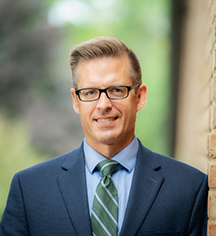There are over 95 images or metaphors for the church in the New Testament, but one of the most central ones is the body of Christ. The Apostle Paul uses this image several places in his writings to describe how Jesus’s community continues the ministry of Jesus collaboratively in the power of God’s Spirit. The variety of spiritual gifts and ministries that Jesus personally embodied are distributed among the church members. For the body to function fully in ministry, all of these gifts and members need to be activated and play their role.
There are many gifts listed in the key New Testament passages that talk about the body of Christ. These include administration, apostleship, discernment, encouragement, evangelism, faith, giving, healing, hospitality, knowledge, leadership, mercy, pastoring or shepherding, prophecy, service, speaking in tongues and the interpretation of tongues, and wisdom. These gifts are spread throughout the body of Christ, not concentrated in one person or leader. They are given so that the whole Christian community can grow into maturity and in its witness to God’s love in the world.
The New Testament’s vision for ministry is deeply collaborative. Jesus invested in forming and training his disciples as apprentices of a distinct Way of life that was an alternative to the prevailing norms of the Roman Empire. Christians lived a countercultural story and countercultural ethics characterized by mercy, sacrificial love, equality, inclusion, holiness, and hope. The church grew because this Way was compelling and attractive in a society oriented around hierarchy, hedonism, and exploitation. 1 Peter 2:9 puts it this way: “You are a chosen people, a royal priesthood, a holy nation, God’s own people, in order that you may proclaim the excellence of him who called you out of darkness into his marvelous light.”
Over time, as Christianity spread through the Roman Empire, the church became defined less by being a countercultural community with high barriers to entry. It became more associated with social and cultural establishment and privilege after the church was legalized by the Emperor Constantine in the 4th century.
In the early church, leaders were identified as having particular gifts such as teaching, shepherding, prophecy, and evangelism that were vital for the body of Christ to grow and flourish. Their work, as we see in Ephesians 4:11, is to equip the whole community of believers for the shared work of ministry. There was not a separate caste of clergy or ordained leaders. Baptism into Christ was the foundation for ministry. Recall that Jesus was in regular conflict with the formal clergy of first-century Judaism—the Pharisees and scribes—when they set themselves apart and claimed higher status than everyone else. Early churches adopted and modified leadership offices from the synagogues of the time, but these were primarily functional roles.
As Christianity became more established in Roman society, it adopted some of the hierarchical leadership structures of the surrounding culture. Holiness became less a defining feature of a community of believers pursuing a narrow and difficult Way of life and more an attribute ascribed to an institution and its leaders by nature of their office. Ministry became something that certain people set apart did for the whole, rather than something the whole did utilizing its various gifts in service to each other and neighbors in a pagan society.
Where does this leave us today? In many congregations, the assumption is that ordained clergy perform the ministry for the members, not just teaching, equipping, and nurturing them to use their gifts in ministry, but rather doing all the things! This can quickly become overwhelming and lead to burnout. In The Unnecessary Pastor, Eugene Peterson says, “Congregations get their ideas of what makes a pastor from the culture, not from the Scriptures; they want a winner; they want their needs met; they want to be part of something zesty and glamorous.” Trying to fulfill these expectations can be deadly, as Peterson goes on to say: “The constant danger for those of us who enter the ranks of the ordained is that we take on a professional religious role that gradually obliterates the life of the soul.”
The era of Christendom in the West is over. We live in a new pagan society. The church must rediscover its identity as a people set apart in holiness, not just look to clergy set apart to embody holiness for the rest of us. This model is increasingly exhausted as many clergy leaders are caught up in unsustainable expectations and unhealthy models and some have fallen in scandals. The church will regain credibility when it lives Jesus’s Way as a community of broken and redeemed people, sinners transformed into saints, and shares Jesus’s story with the world. As Paul says in Ephesians 4:15-16: “But speaking the truth in love, we must grow up in every way into him who is the head, into Christ, from whom the whole body, joined and knit together by every ligament with which it is equipped, as each part is working properly, promotes the body’s growth in building itself up in love.”


